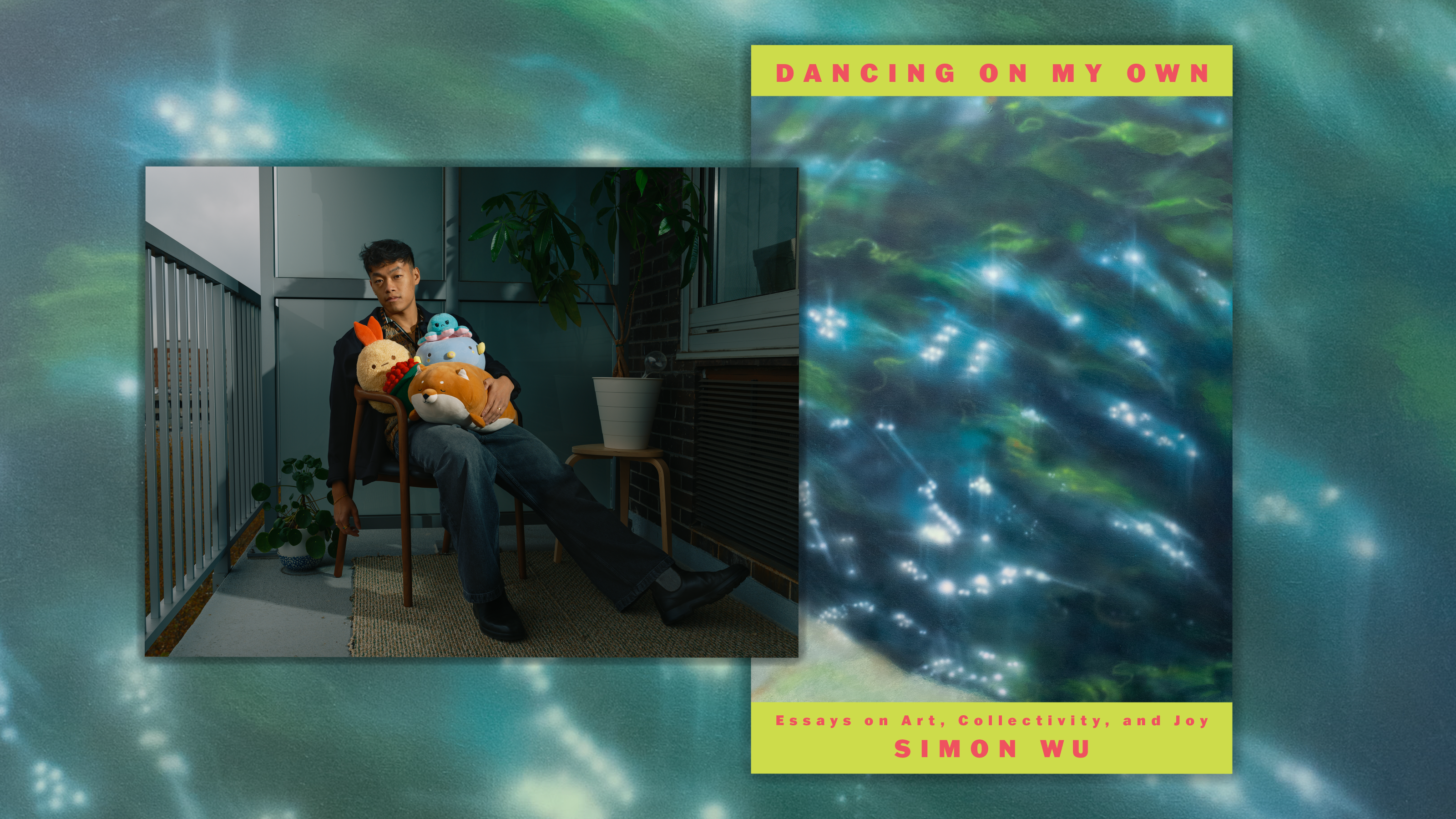
Writer and curator Simon Wu knew his first essay collection would be titled “Dancing On My Own,” after the pop song by Robyn, before he had even started working on the book. Born in Myanmar and raised in Philadelphia, Wu, 29, ventures toward emotions similar to the song’s booming synths and crying-in-the-club lyrics about losing out on love: “I’m in the corner watchin’ you kiss her.”
Combining stylistic personal memoir with art criticism, Wu crafts seven braided essays spanning topics from cleaning out his parents’ garage to trendy Telfar bags and Berlin dance floors. Wu has extensive experience in art criticism, having studied art history at Princeton. He is currently an art history Ph.D. candidate at Yale. In “Dancing On My Own,” he takes readers through Asian American art movements across many times and places but always convincingly grounds his essays in personal experience.
Character Media had the opportunity to speak with Wu about his essay collection, which was released June 25. Wu discusses his experience as an Asian American in the art world, his favorite pop music and whether or not his mom has read the book.
Character Media: During your childhood or young adulthood, did you know that art was for you?
Simon Wu: I grew up doing a lot of arts and crafts with my mom that I never considered [to be] art with a capital “A.” When I went to college, I was a chemistry major for two years and thought I was going to become a doctor. It wasn’t until I took a class sophomore spring on contemporary art that I was like, “Wow, there are a lot of different types of art other than painting, sculptures and stuff like that.” It was relatively late that I realized that I could turn the things that I was doing with my parents around arts and crafts into something that was more connected to history and professional life.
CM: What is it like to find your way in the art world as an Asian American?
SW: Starting to work in [art] was bifurcated by the initial experience of feeling like I didn’t see very many people who looked like me. … [But] once I started looking at it, it felt like there were actually so many [Asian American artists]. There have been so many. It’s not for lack of numbers; it’s rather a lack of history books, interest from major museums and air time in different kinds of galleries and media.
CM: As someone who’s writing about nightlife and parties, what does it feel like to write so vulnerably and honestly? What is it like to put yourself out there like that?
SW: [Writing] felt like trying to tap into what felt the most truthful in a moment and documenting as close to the emotional truth of a moment as possible. Even in my art writing or in general criticism, my opinions, tastes and interests will change over time, but if I can document how I felt in a certain moment, then, to me, it will always hold value in the sense that it’s a marker of a particular time, a place and a certain mentality. I have an interest in preserving emotional truth, and that really pushed me to dig into a lot of these memories.
CM: Talk more about your relationship to the song “Dancing On My Own.”
SW: There’s something about the feeling that it captures: being sad while dancing or being alone but with other people. Those two contradictions are just embedded in the way that the music sounds. Words fail to describe it, and then you listen to the song, and that’s what it feels like.
CM: Continuing this conversation about pop music and electronic dance music that you write a lot about, what artists, songs or albums are you listening to right now?
SW: I’ve been listening to so much Chappell Roan, who is really a sleeper-pop person for me. I really hadn’t had her on my radar, but there’s something about how earnest, raw and very nonchalantly queer [she is]. [Being queer] is not so much of a thing, it’s just another part of her. Also, [I’ve been listening to] a lot of Lana Del Rey in the summer and cliche things like Charli XCX.
CM: What’s coming up for you in the near and further future?
SW: There were three run-off essays from the book. I think of them as bonus tracks that are about Costco, CrossFit and cute boys; I’m really seeing them as a unit and an epilogue. Hopefully, I will put those together in some way in the future. Down the line, I’m working on a novel, and it will be about California. It’s kind of based on my friend’s experience interning for a curator in California for a summer.
CM: So, has your mom read the book at this point?
SW: We asked our auntie to do a favor for us, and my mom was like, “You should give her a book in thanks.” This was two weeks ago. My mom sat down and finally read the book for the first time, [and] then she took a nap, and then when I saw her again, she was like, “I changed my mind. Don’t give your book to the auntie. All of our business is all over the book.”






